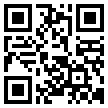Learning disabilities refer to problems that affect some children when trying to accomplish specific tasks such as speaking, listening, concentrating, writing, reading, and math. The disorder limits the child’s ability to process and retain information. These problems arise due to the brain’s inability to process certain sight and hearing stimuli. Learning disabilities have no associations with eye problems but are mental processes that affect learning.
Almost all the activities in school are related to vision and hearing for the child. Thus, any learning disability will impact a child negatively. The child is frustrated with hard work that does not seem to produce results even though they may be intelligent and motivated. Such children are not dumb or lazy. It’s only that their brains are wired differently where they do not see, hear, or understand things the same way as other people.
A distinction ought to be made between learning disabilities and learning difficulties. In the former, the disability arises when the brain does not process visual information correctly. Learning disabilities such as dyslexia are not due to problems with vision. Emotional disturbances and mental retardation are also not included as learning disabilities. In learning disabilities, explicit images are being sent to the brain for processing, but the brain cannot process them well. On the other hand, learning difficulties are caused by problems with vision such as eye misalignment and blurry eyes. These difficulties can be corrected by glasses or surgery, unlike learning disabilities.
Causes & Risk Factors
Causes for learning disabilities remain unknown. Risk factors may include:
- Pre-term babies
- Severe head injury
- Central nervous system infection
- A family history of learning disabilities
- Stress at the point of birth or soon after
Signs & Symptoms
Learning disabilities’ signs and symptoms are not noticeable until the child starts formal schooling. There are no vision problems detected. The signs and symptoms include:
- Dyscalculia or math problems where affected children are unable to order numbers correctly, perform basic math calculations, etc.
- Auditory processing disorder where the children have trouble hearing well and this may affect their reading, language, and comprehension
- Visual processing disorder where the affected children experience problems interpreting visual information such as in charts, pictures, and symbol
- Dysphasia or difficulties with language where the affected children have problems understanding spoken language and reading comprehension
- Personality and behavior changes such as being easily irritable, developing anxiety/depression, losing interest in school, developing behavioral issues at school, etc.
- Autism spectrum disorder where the child is unable to socially interact with other members of the society. Such children also lack eye contact and display strange repetitive interests while excluding other activities
- Dyslexia or difficulties in learning to read and comprehend a text. Such children have problems with being aware of phonemes, distinguishing similar-sounding words, spelling, fluency, etc. They lack interest in reading or derive no pleasure in reading
- Disorders with maintaining attention such as attention deficit hyperactivity disorder or attention deficit disorder with the child having speech, language, or nonverbial issues. These children have trouble being attentive and staying on a task. They are also easily distracted
- Dyspraxia or defects in processing auditory or visual data where the children have trouble processing and making sense of sensory data. This makes it difficult for them to recall important information necessary for success. These children have problems with hand-eye coordination, manual dexterity, and balance
- Dysgraphia that affects writing capabilities. The affected children are unable to hold a pen properly. They are slow in organizing information and thoughts coherently to accomplish a writing task. These children may have redundant information in their writing or omit critical information. Sentence formation and grammar may also be troublesome
Diagnosis
Although eye problems do not cause learning disabilities, an ophthalmologist should conduct a full eye examination to eliminate the possibility of any vision problem affecting reading. Sometimes vision problems are mistaken for learning disabilities.
Parents or caregivers who suspect that their child may be affected by learning disabilities should consult a pediatrician or the teacher. Schools are required to test children with learning disabilities according to US law in many States. Learning disability specialists and other professionals will help diagnose the condition through specific tests.
Taking family and medical history will help diagnose the disorder. A trained specialist will observe the child for signs and symptoms. Different types of specialists can help diagnose learning disabilities. These include clinical, educational, school, and development psychologists. Others are child psychiatrists, neuropsychologists, psychometrists, occupational therapists, and speech and language therapists.
Treatment
Treatment aims to lessen the impact of the disability and provide the child with a high-quality education. The child will receive special education or other special services to manage learning disabilities. For instance, there are qualified reading specialists and educators who provide such children with support and guidance. The affected children learn specific strategies and special skills that help them adapt to learning. Parents are counseled so that they develop patience because it takes time to realize success.
Because children with disabilities may develop emotional problems like depression, low self-esteem, and anxiety, they receive counseling and other special services. Parents and caregivers are also taught to recognize these signs and their role in calming the child to create reassurance.
Parents and guardians also need to know that no quick fixes for learning disabilities exist and that only professional personnel can help with the disorder. There is no scientific evidence to conclude that special diets, megavitamins, eyeglasses, eye exercises, vision therapy, or sugar restrictions can cure learning disabilities.
Prognosis & Long-Term Outlook
With deliberate specialized treatment, children with learning disabilities succeed in life as anyone else.
Prevention & Follow Up
The healthcare specialists and parents/guardians monitor and assist these children for successful outcomes.

